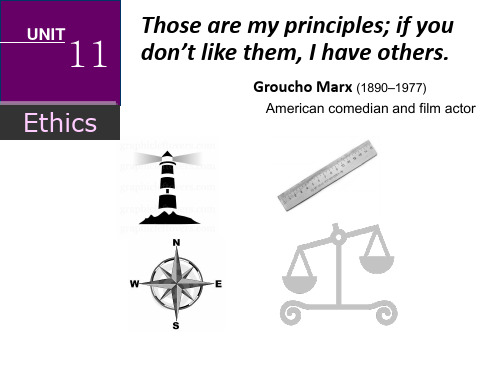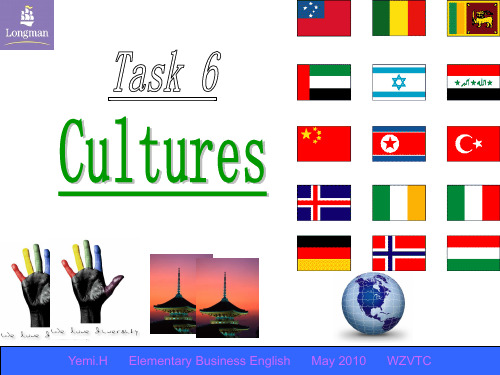unit11教案-体验商务英语综合教程
- 格式:doc
- 大小:92.00 KB
- 文档页数:8






【Title of Lesson】Unit 11 Inquiries and Replies【Text Book】Basic Business English【Teaching Objects and Demands】➢Knowledge and Ability Objects1. To let the students know some basic knowledge of inquiries and replies.2. To let the students know some words and phrases about inquiries and replies.3. To train the students’ abilities of listening and speaking.4. To train the students’ abilities of using English to make simple dialogues about inquiries and replies.➢Procedure and Method Objects1. Through self-study, train students’ abilities of analyzing problems, solving problems and summarizing problems.2. Through group activities, train students’ team spirit of mutual cooperation and to improve their communication ability.3. Through the competition, trai n students’ sense of competing and participating actively, stimulate students’ interests in learning, improve their abilities to adapt to change and enhance their thinking abilities.➢Moral and value Objects1. To enable the students to understand the importance of knowing what are inquires and their replies.2. To lay the foundation for the future English communication.【Teaching Key Points】1. Some words and phrases about inquiries and replies.2. Some sentences patterns about inquiries and replies.【Teaching Difficulties】How to enable students to make inquiries and replies.【Teaching Aids】Multi-media computer, cards and some exercise papers; Software: Microsoft PowerPoint 【Teaching Methods】Interactive teaching (learning--reciting –utilizing), discussion, questions & answers methods with the help of some games and activities.【Teaching Periods】180 minutes ( 4 Lessons)【Teaching Procedures】Step 1: Lead-in1. Through free talk to lead in the new lesson. Such as:T(Teacher): Hi, Liming! What a nice coat you are wearing!Ss(Students): Thank you.T: How much is it?Ss: Well, it cost me 200 yuan.T: Oh, it is worth the money.T: This is the way to make inquiries and replies. You know ,when you want to know the price of something you don’t know, you will ask others, or you will go to a shop to ask the assistant for price. So Making inquiries and replies in daily life is very important ,today we will learn about inquires and replies.2. Explaining in detail the ways of making inquiries and replies in foreign trade.Aim:By questions and answers to lead in the lesson directly and let Ss know the task of this lesson clearly. To encourage Ss to think and express their own ideas freely to arouse their interests.Step 2: Listening and speaking【Teacher’s words】I have explained something about inquires and replies. Now let’s listen carefully how do they make inquires and replies at the Fair.1. Listening ActivityA. Divide the class into several groups and ask the students to do listening activity: Listen to the dialogue carefully ,discuss in groups and do Task one together.B. Ask Ss to say their answers out, one student acts as the representative in each group.C. The teacher checks the students’ answers and shows out the correct answers on PPT.D. Listen to the dialogue again and do Task two: Filling the missing words together.E. Listen to the dialogue for the last time and do Task three: Answer the following questions. Aim: Through Listening Activity repeatedly to let Ss be active in thinking and train their abilities of listening and cooperation.2. Speaking Activity【Teacher’s words】Now we have learned some words and patterns about how to make inquiries and replies.Next we will do pairworks according to the following situations:A. PPT shows the situation and some useful knowledge:Situation : Student A is a businessman/ businesswoman of Zhejiang Light Industrial Products Import & Export Corporation. Student B is a customer from England,who is making an inquiry at Student A.Useful knowledge:I’d like to make an inquiry for….At what price…?I shall be glad if you ….What about …?Thank you for….A Model Dialogue:A:Good afternoon. I’m from Zhejiang Light Industrial Products Import & Export Corporation. Here’s my card.B:Thank you. I’m from England and we are interested in your canned mushrooms.Nice to meet you.A:Nice to meet you, too. I hope we can do business together.B:I’m glad to hear that. Would you please give me a brief introduction to your product?A:Sure. Our canned mushrooms are full of minerals, high in protein, rich in nourishment and tasty. B:It sounds good and I hope they will be popular with the consumers in our country.A:I hope so.B:Thank you for your introduction. I’d like to have your lowest quotation CIF London.A:Thank you very much for your inquiry.B. Two Ss a group. One student acts as a purchase manager in a foreign trade company to make inquiries to your partner(a salesman from another country). Then change the roles .Aim: Through the Speaking Activity to train Ss’s skills of listening and speaking and abilities of using language.Step3. Business Reading1. Learning the text【Teacher’s words】Just now we have learnt something about making inquiries in daily life.Now we’d like to know what inquiries are and what are their replies. This step we will do self-study activity , Guess game(猜一猜游戏),Choosing Game (选一选游戏)and Filling Game(填一填游戏):(1) Self-studying ActivityA. Give Ss 5 Mins to self-study the text with three Pre-reading Questions:1. What is an inquiry?2. What should be included in a letter of inquiry?3. When is a specific inquiry needed?B. Ask Ss to answer the questions.C. Let Ss explain the meaning of the text one sentence after another.D. Teacher checks.E. Ss read the text together.(2) Guessing GameA. PPT shows some key words, phrases and sentences.B. Ask Ss to do contest of guessing the meanings one by one.C. Teacher checks.D. Ss read the key words,phrases and sentences together.(3)True or False questionsA. PPT shows five sentences about the text.B. Ask Ss to choose “True or False” one by one.C. Teacher checks..(4)Choosing GameA. PPT shows eight incomplete sentences with four choices below each sentence.B. Ask Ss to choose the best answer.C. Teacher checks.D. Ss read the completed sentences together.Aim: Through self-study activity and Guessing game to let Ss know the meaning of text about making an introduction, master some useful words,phrases and sentences. And by reading the text to train the students’ reading abilities and let Ss pay attention to their pronunciations.2. Games for Grammar【Teacher’s words】: In this step we will play two games:Chinese Whisper (传话游戏). In Chinese Whisper game, a sentence using a certain tense in this unit will be chosen and will be shown on PPT after the game is finished to check their answer. The group which whispers the very sentence correctly wins.Chinese Whisper (传话游戏)A. As many players as possible line up such that they can whisper to their immediate neighbours but not hear any players farther away.B. The player at the beginning of the line whispers the sentence given by the teacher as quietly as possible to her/his neighbour.C. The neighbour then passes on the message to the next player to the best of his or her ability.D. The passing continues in this fashion until it reaches the player at the end of the line, who calls out the message he or she received.E. Teacher checks the answers.Aim: Through this step of Games for Grammar to let Ss study and review grammar knowledge about tens happily and unconsciously. And train the Ss’s being active in obtaining information, enhance their skills of listening and speaking.Step 4: Consolidation and Summary【Teacher’s words】: In this step we will do many practices activities to consolidate and sum something we learn in this lesson.(1)Let Ss do the exercises “Complete the following sentences with the Chinese given(words)in the brackets. “and “Choose the best answer.” to consolidate the grammar of tense.(2)Let Ss do the exercises “Translate the following sentences into Chinese.”, “Cloze.” And “Writing.” to expand Ss knowledge of making inquiries and replies.Aim: Through many exercises to do summary and consolidation to this lesson make Ss review and master the knowledge which we learn in this lesson. Emphasizes the key points and difficult points of this lesson again so as to let Ss know the importance of making inquiries and replies further.Step 5: Homework【Teacher’s words】: Here there are four pieces of homework. Each student must do the first ,second and third. And Ss have the right to decide whether he will do or not do the fourth one by themselves.1. Read and recite the new words and expressions.2. Read the text fluently.3. Act as roles to make dialogues with your partners.4. Search more knowledge about making inquiries and replies.Aim: Through assignment by levels to let Ss choose their homework by themselves to encourage Ss to analyze themselves, improve Ss’ abilities of listening,speaking and reading further and train Ss’ abilities of communicating wit h others.。
江西外语外贸职业学院教案备课纸(2)
主任审阅_____________ 授课教师
年月日年月日
授课内容
Unit 11 Cultures
Starting up
1.Imagine you have a foreign friend Jerry will visit China, what
suggestions will you give to him?
2.Look at tips for visiting another country or doing business there,
and think about which tips are good advice for our country. Vocabulary: Company cultures
annual leaves; casual; shift work; flexible hours;
innovation; empower; procedure; incentive; efficient
Here are different points about company arrangements. Let’ learn it. Complete those sentences with the items in brackets. And you guys do the group-work to discuss the type of organization that you would like to work for.
Do Exercise C and then work in pairs to discuss and rank the characteristics.
Listening: Cultural mistakes
Listening four people talk about cultural mistakes; and do you know what other examples do you know? Think about what could we do to avoid serious mistakes?
Language focus 1: should/shouldn’t
Ss look should/shouldn’t to give advice and to say that something is or isn’t
a good idea.
1)Ss read through and teacher explains the Language focus box.
We use should and shouldn’t to give advice and make suggestions.
E.g. We should wear formal cloths to the dinner.
We often use I think or I don’t think with should to say something is or isn’t a good idea.
E. g. Do you think I should learn to speak the local language?
Please pay attention to should+V.(room form of the verb)
授课内容
Unit 11 Cultures
Language focus 1: should/shouldn’t
Ss complete the Exercise A individually;
For Exercise B, Ss do the pair work and check the answers around the class.
E.g. (1) I don’t think he should go to Paris next week.
(2) You shouldn’t buy a franchise.
(3) She should take the customers to an expensive restaurant.
(4) I don’t think we should launch the new product now.
(5) My boss doesn’t think it is too late to send the report now.
(6) We shouldn’t order now.
For Exercise C, Ss do the first sentence together to demonstrate the exercise. Then get Ss to write sentences individually using should or shouldn’t Reading: Wal-Mat in Germany
Ss discuss the questions in Exercise A, and teacher summarized those answers to make a list of the cultural differences on the board;
Give Ss a few minutes to scan the article to see if any of the differences listed on the board appear in the article; Clarify any difficult vocabularies (such as pulled out, discount chains, habits, sensitivity, chant, union).
The whole class reads the article again in more detail and does the Exercise C together.
Ask Ss to work in small groups to list the problems that Wal-Mart had in Germany. Next teacher explain to Ss that the answers lie in some paragraphs, but pay attention to use should/shoul dn’t to rewrite the sentences. For example:
1). Wal-Mart should deal with different corporate cultures with more sensitivity.
2). Wal-Mart should use local management
3). Wal-Mart should care less together whether its foreign stores carry the name derived from its founder.
授课内容。